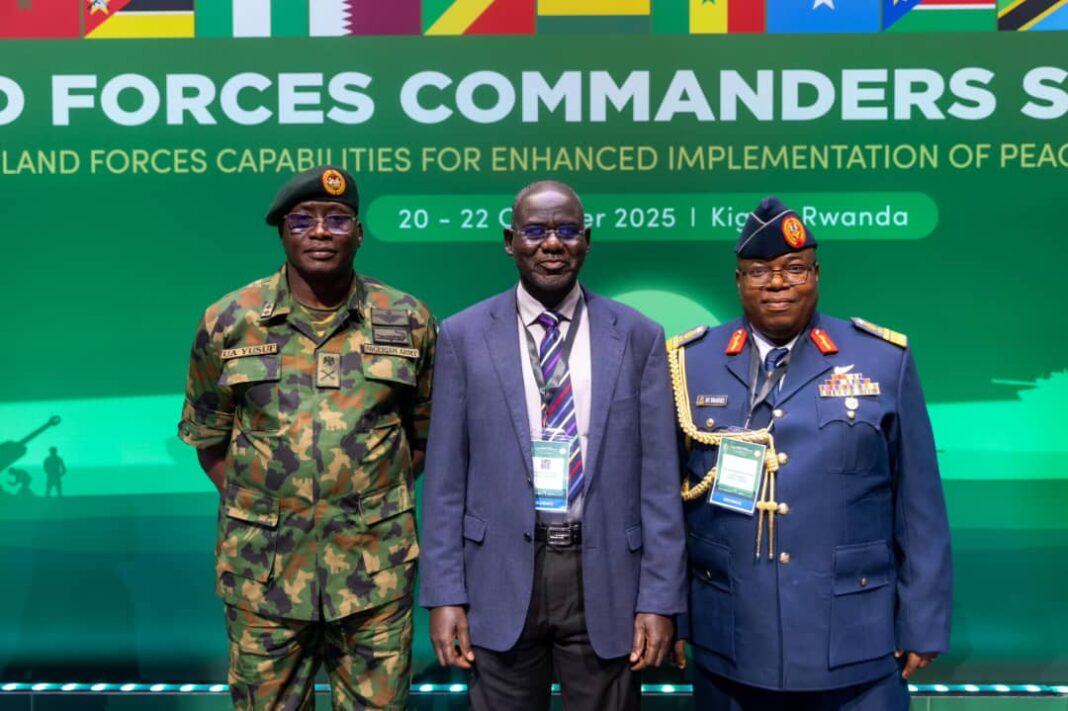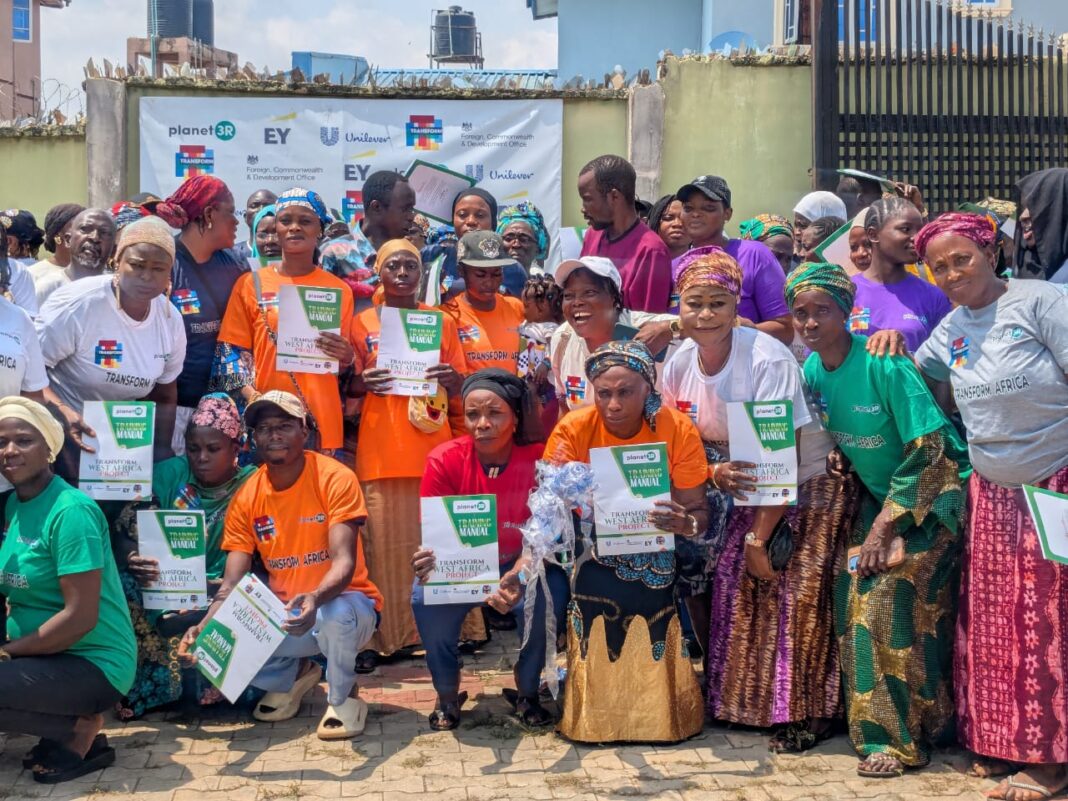Former Nigerian Chief of Army Staff and ex-ambassador to the Republic of Benin, Lt. Gen. Tukur Yusuf Buratai (rtd) has called on African military leaders to strengthen interoperability and communication systems during peace time, emphasizing that effective collaboration should not begin only when conflicts erupt.
Buratai made this call while speaking during a panel session at the Land Forces Commanders Symposium (LFCS) 2025, held in Kigali, Rwanda, from October 20 to 22, 2025. The annual forum brought together senior army chiefs, defence officials, and strategic thinkers from across Africa and beyond to discuss the theme:
“Leveraging Land Forces Capabilities for Enhanced Implementation of Peace and Security Strategies.”
Hosted by the Rwanda Defence Force (RDF), the symposium deliberated on contemporary defence and security issues affecting Africa’s military. One of the sub-themes discussed by Gen Buratai is ‘Enhancing Interoperability among Land Forces in Africa and beyond,’ which explored the technical, procedural, and human dimensions necessary for joint military effectiveness.
Buratai’s Practical Reflections on Africa’s Security Cooperation
In his remarks, Buratai expressed appreciation to the Rwanda Defence Force for the invitation, recalling his last visit to Kigali in 2017 as Nigeria’s Chief of Army Staff. Reflecting on his experiences, he stressed that Africa’s defence forces must establish mechanisms for rapid, reliable communication and coordination during peace, not only in crisis situations.
“We don’t have to wait until operations begin before we start communicating efficiently,” he noted. “There must be a deliberate effort to create seamless, continent-wide communication frameworks among our armies.”
Citing his experience as Commander of the Multinational Joint Task Force (MNJTF)—which comprises troops from Nigeria, Chad, Niger, Cameroon, and Benin Republic—Buratai highlighted that “Incompatibility of communication systems, disparities in training and doctrine, and non-standardized equipment often limit our collective effectiveness,” he said.
“We must harmonize training, doctrines, and communication standards under the auspices of the African Union and regional blocs like ECOWAS and SADC.”
Lessons from Past Peacekeeping Operations
Drawing on Nigeria’s experience in ECOMOG operations in Liberia and Sierra Leone, Buratai warned that fragmented logistics, communication gaps, and differing rules of engagement among allied forces create friction that undermines mission success.
He also referred to challenges faced in AMISOM and AU missions in Sudan, noting recurring issues in logistics coordination, medical evacuation, and unified command structures.
“The lesson is clear — interoperability must begin from peace time,” he stressed. “Once it is tested and institutionalized in peace, it transitions smoothly into operations.”
Strategic Vision for Africa’s Defence Collaboration
Buratai’s intervention aligned with earlier remarks by President Paul Kagame, who urged African leaders to “challenge assumptions” and develop a new culture of collaboration that transcends borders and bureaucratic barriers. Kagame emphasized that Africa’s security challenges demand shared responsibility and professional cooperation among armed forces.
Pne of the symposium’s moderators, Brig. Gen. Patrick Kuretwa, Director General of International Military Cooperation at Rwanda’s Ministry of Defence, described interoperability as the ability of allied militaries to act together coherently, efficiently, and effectively to achieve tactical and strategic objectives.
“This symposium is timely and very necessary,” Buratai said. “It challenges us to think strategically and act collectively to enhance peace and stability on our continent.”
About the Land Forces Commanders Symposium
The Land Forces Commanders Symposium (LFCS) is a continental platform that brings together African army chiefs and senior officers to discuss shared security priorities, exchange operational experiences, and develop coordinated frameworks for peace support and defense cooperation.
The 2025 edition, held in Kigali, featured high-level participation from East, West, Central, and Southern African militaries, as well as international partners. Discussions focused on Rethinking Land Operations in the Era of Drone Warfare, Promoting Bilateralism as a Complementary Option to Multilateralism to Achieve Peace and Security, among others is not only timely; but it is a must for African Land Forces and African-led security solutions in response to evolving continental securitychallenges.



